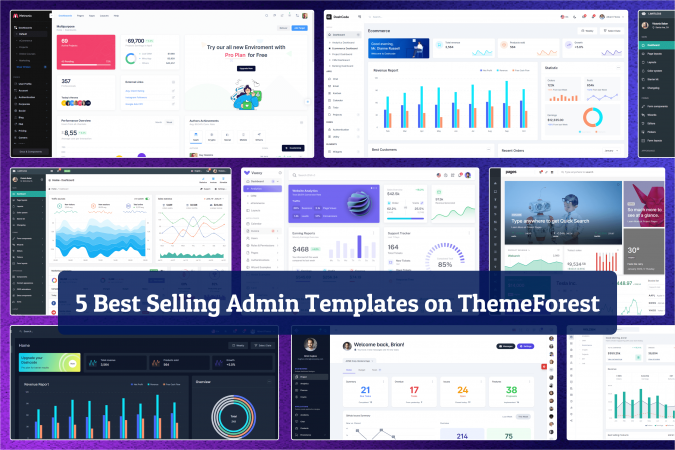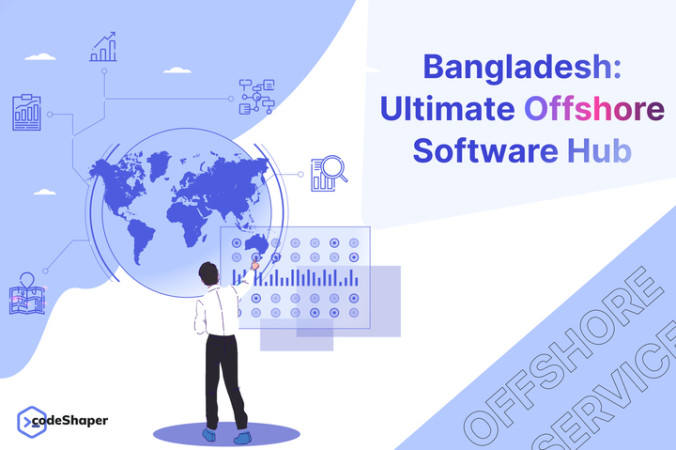Offshoring is a well-liked business strategy for shifting an organization's hiring or business operations to another country to cut expenses and boost efficiency. Most businesses opt to offshore certain jobs or entire processes in low-cost countries to save money on hiring and resources to lower production costs or other operational expenses.
Global market figures indicate that in an average year, almost 3 million service jobs are anticipated to relocate to lower-wage countries. Numerous factors, such as globalization, cutting-edge technology, and operating expenses, could cause this number to change. The offshore service business operates in various areas, including information technology, customs services, and manufacturing.
However, market analytics predict that the offshore IT services industry will increase to $806.53 billion by 2029, due to advances in communication technology and the availability of cost-effective approaches in developing countries. Like other South Asian countries, Bangladesh has achieved huge success in the software and information technology industries, which has the potential to boost the offshore service industry as well.
What is offshore services?
The offshoring service model involves sourcing specialists and gaining talent support from international marketplaces, which is crucial to scaling business growth.
Offshoring countries are often developing countries that provide access to low-cost hiring with qualified people, creating numerous opportunities for those countries. Because of the cost savings, this offshore service trend is becoming increasingly popular globally.
Offshore Service meaning?
Essentially, "offshore" refers to the movement of the business onboarding process or hiring professionals from another country, typically where the personnel cost is lower than the company's primary headquarters. This methodology assists firms in streamlining the hiring process from global talent markets while keeping a high level of talent acquisition for the company.
Learn about offshore services, their models, and strategies to scale your business effectively.
Why does a company choose to Offshore?
For organizations, offshoring is a more affordable alternative to traditional hiring. Typically the hiring process for employees is based on policies and procedures that take a lot of time and money to implement. The traditional employees must be present on-site and do their jobs to sustain the daily running of the business.
Furthermore, remote work is now a viable option because of the development of the Internet. By filling skill shortages offshore, businesses can expand their teams and access people worldwide, regardless of location. They assign a portion of the project to the experts in this procedure, and they function as an extension of your in-house team, collaborating and developing alongside your project's goals.
Depending on its long-term goals, a corporation uses an offshore model. It's critical to comprehend the potential advantages and difficulties of selecting the best offshore provider because it enables you to customize your business and obtain top-notch services.
However, despite many advantages offshore service also has some challenges in managing cultural differences and maintaining communication worldwide.
Most offshore service providers have covered additional services including consultancy, human pipeline management, market research, and customized recruitment strategies.
How does the Offshore Model work?
Companies offer offshoring services based on their long-term ambitions. Understanding each firm's unique goals and requirements, as well as its long-term vision and difficulties, is crucial to determining your company's best offshore working model.
Companies often use three offshore service-providing models to meet their business needs.
Extended Team Model
In this model, the company can bring on an extended team of professionals who collaborate with the in-house team to suit the company's long-term needs. With this model, the entire workflow depends on the company's internal team and working approach, which can sometimes create a complex scenario for the organization.
Most small and medium-sized businesses adopt this offshore model because they require more professional assistance to expand their operations. Despite the cost-effective technique, this model might become costly for your business.
Management Team Model
With the offshore team management model, the organization tackles fewer management concerns while being cost-effective. That is why it is gaining popularity rapidly. This technique is suited to the company's specific skills demands, which include meeting their core specialized role or filling a skills shortage for certain projects. This flexible methodology is not ideal for long-term solutions because it gives the organization less control over its projects.
Custom Solution Development Model
This offshore model is appropriate for companies that require specific capabilities for their unique solutions, which cannot be provided by off-the-shelf or typical industry personnel. This strategy enables a corporation to handle a tailored solution for their unique business service or product, which involves large workloads and lengthy development processes. Indeed, it is a pricey offshoring model. However, it ensures that your consumers receive a one-of-a-kind solution, resulting in significant profits.
Types of Offshoring
Most offshore service provider companies offer two types of offshoring services: production and services. These services help firms establish dedicated offshore teams and successfully expand their operations.
Offshoring services are a realistic alternative, particularly for small—to medium-sized enterprises looking to gain a competitive advantage and expand their business without incurring excessive costs.
Production Offshoring
Production offshore refers to a corporation establishing a manufacturing unit and importing finished products from another country for sale in domestic and international markets. Companies use this method to cut manufacturing costs by procuring cheap labor and supplies.
Services Offshoring
Services offshore are where a corporation establishes business units in other countries or hires professional capabilities to undertake service-based operations alongside its in-house teams to scale up business growth. Most IT firms offer outsourcing services such as software development, marketing, customer service, and accountancy. This technique allows the company to focus on its core business while offshore other services at a lesser cost.
What are the Benefits of Offshore IT Services?
Do you know the key advantages of offshore IT services? After reviewing the primary benefits of offshoring services, it is evident that offshoring is a feasible alternative for enterprises.
Offshore IT services have various advantages for a business. They're highly affordable, time-consuming, and adaptable. They also provide access to cutting-edge technologies and a highly skilled team ready to boost your company's time and profit without additional training. Here, I will outline significant benefits that firms can gain by offshore the team:
Cost-effective Hiring
Offshore is vital for medium and small firms looking to minimize development and service expenses, and boost team productivity. According to the Statista 2023 report, 64% of companies outsource software development to reduce costs. Offshore service provider firms enable you to hire top talent and grow your team without incurring additional operating costs for salary, equipment, incentives, and training programs.
As a result, a company may focus more on its primary goals and business investments, improving its future brand value.
Access to the Global Talent Pool
A company can use offshore teams to expand its global specialized knowledge workforce by removing geographical boundaries. Based on the marketplace's best talent profiles and works, you can quickly strengthen your team and reduce skill shortages. This is one of the key reasons that businesses seek offshore services. To serve your target clients with high-quality services or products, you must improve your team's skills and experience. Offshore is the most effective option to fill your team's talent gaps.
This method offers maximum freedom when onboarding expatriates. The capacity to interact with expatriates is the company's most valuable competitive edge.
Access to the Advanced Technology
AI technology has significantly impacted the software development industry in recent years. Maintaining this flow may make offshore one of the finest tactics for gaining access to breakthrough technologies for your organization. Most software firms now use advanced technology or
AI-driven technology increases business revenue and reduces additional costs of business operations. When you offshore a team, they come with the necessary skills but also possess vast job experience and advanced tools. The faster you adopt these technologies, the sooner you will get a competitive advantage over other companies!
Flexible Support
Offshore makes it simple to hire professionals and specialists with specific abilities from a country with a lower labor cost margin than the hirer company in a predominantly developed country. Hiring specialists or firms from those continents usually have different time zones, which gives you the added benefit of receiving support at flexible times. Companies that rely heavily on information technology will benefit the most, as they must ensure that the system is operating at all times.
Focus on Core Competencies
If you own a small or medium-sized business, you don’t have enough workforce to oversee all your employees and projects. The offshore strategy offers you the option to avoid constantly monitoring administrative tasks. If your onboarding team or professionals match your criteria for adapting and sustaining high-quality work while meeting deadlines, that's it.
However, select a reputable offshore company that is ideal for your company's growth and employs the most productive personnel.
What are the Risk Factors of Offshoring Services?
Some challenges are there with offshoring IT services, including potential communication barriers, quality control, security, and cultural differences, the rewards can far outweigh the risks when managed effectively. As companies navigate a competitive global landscape, embracing offshore services can be the best strategy to enhance productivity, optimize resources, and achieve long-term success.
In conclusion, offshoring has proven to be a highly effective strategy for businesses seeking to scale efficiently while lowering operational costs. Companies can scale up by adopting a cost-effective method, gaining access to a diverse talent pool, and improving productivity. The growing global demand for offshore software services highlights the benefits of this approach, particularly in light of technical improvements and globalization.
Thinking of offshoring? Get in touch with us today for customized solutions!






































